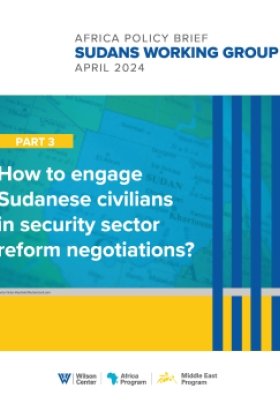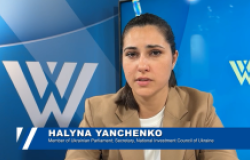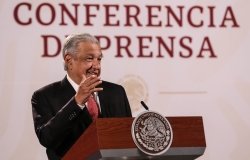Scholar Studies Roles of Women in Environmental Conservation
Wilson Center Public Policy Scholar Kathryn Fuller is using her expertise gained from working for the World Wildlife Fund, the U.S. Department of Justice, and the Ford Foundation, which she currently chairs, to write about women transforming their communities through environmental conservation around the globe.
When Kathryn Fuller first entered the field of environmental conservation, it was rare to find a woman at the helm. Yet it was a feat Fuller would rise to accomplish. After joining the World Wildlife Fund in 1983, she served in various capacities, including director of WWF's public policy and wildlife trade monitoring programs. In 1989, she became its president and CEO, and held that position for 16 years.
"I wanted to play a role in conserving nature," Fuller told Centerpoint, "and in my career, I've done things I never imagined" from working with heads of state to studying the behavior of wildebeest in Tanzania to negotiating debt-for-nature swaps.
Having conducted fieldwork with WWF over the years, Fuller witnessed remarkable advances in women's leadership on several levels. On one level, women like her began taking on leadership roles in such organizations.
On another level, in the developing world, she said, "Some women have had a transformative impact in their communities on how they manage environmental resources," such as finding and providing clean water for their families. But some consider their efforts simply necessary for survival and do not consider themselves heroes.
"Some define themselves as activist leaders; others do not," said Fuller. For some, it's about ambition; for others, subsistence. "Some women help decision-making simply through dialogue, and most don't seek personal credit," she said.
Fuller is currently a public policy scholar at the Wilson Center, writing about the roles of women in environmental conservation in communities around the world, primarily in Asia, Africa, and Latin America. She is comparing several case studies to capture the experiences and perspectives of these women.
Fuller recalled once having a discussion with a group of men and women in Nepal where, she said, "the men spoke on behalf of the women, saying ‘She thinks that '" Fuller noted that these women probably had a lot to say, but did not have a voice in their communities.
For her project, she said, "I wanted to write about women who move from traditional female roles, often at great personal cost." Fuller is considering differences in societal, political, cultural, and religious structures; the commonalities of these women who are transforming their communities at the grassroots level, and their expectations for the future.
Trained as a lawyer and marine ecologist, Fuller headed the Wildlife and Marine Resources Section at the U.S. Department of Justice before coming to WWF. Her diverse work experiences, including her work at the Ford Foundation, which she currently chairs, inspired her thinking on this project.
During her time at WWF, Fuller played an instrumental role in securing conservation trust funds for numerous countries around the world. Now worth hundreds of millions of dollars, these locally run, independent funds support daily operating needs of park systems and other environmental projects. The first, set up in the small Himalayan kingdom of Bhutan, catalyzed its investment and now has a $40 million fund and its own board. She proudly reflected, "We've created local institutions for the long term, supporting conservation needs in places where conservation would not be well-funded otherwise."









